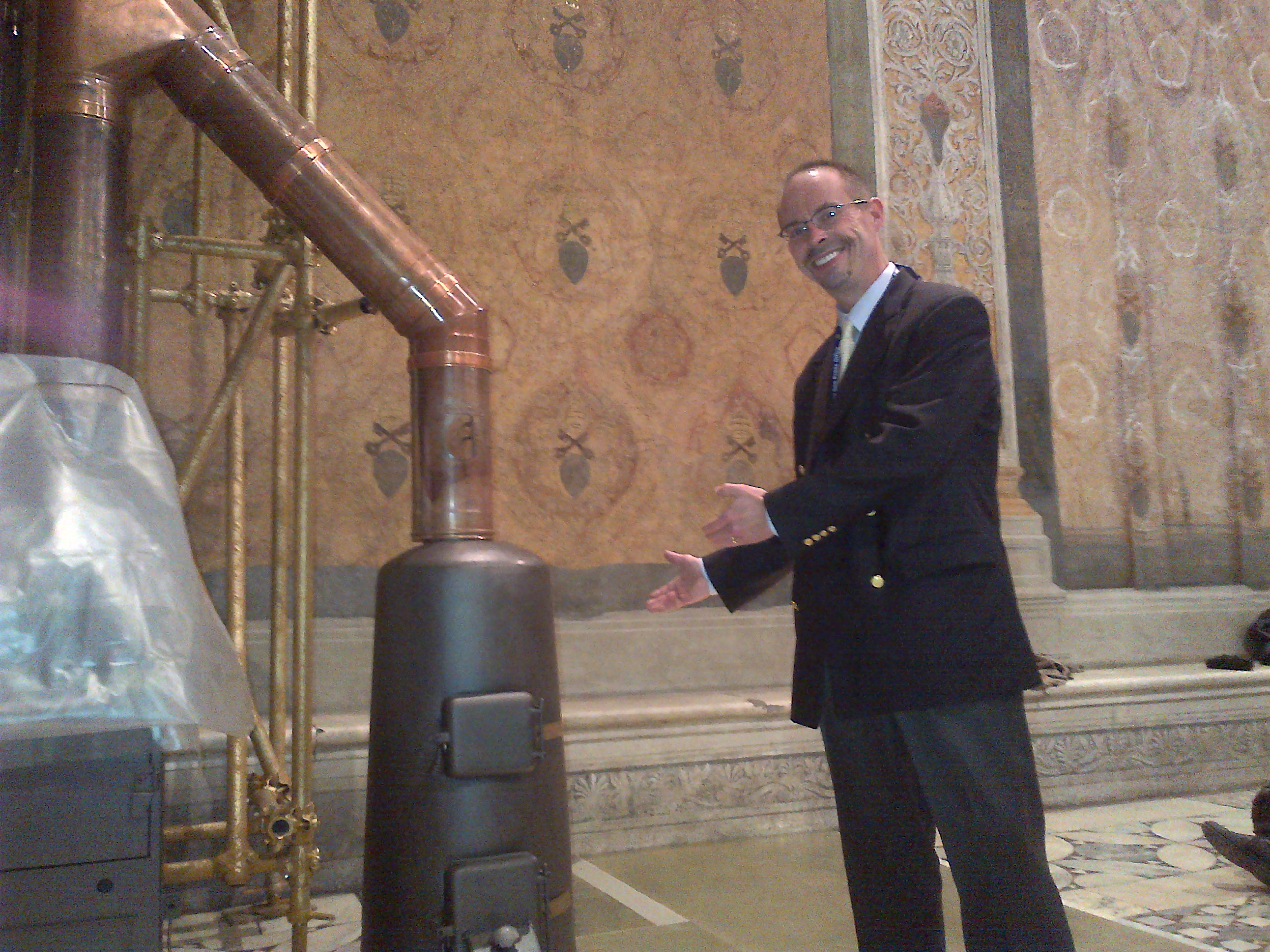
NCR senior correspondent John Allen shows off the famous stove in the Sistine Chapel
Rome
Actually, I was not busted attempting to infiltrate the looming conclave. Instead, I was part of a group of journalists who were given a tour of the Sistine Chapel this morning, where the 115 cardinal electors will begin the business of picking a new pope on Tuesday.
Here, I’m playing Vanna White by showing off the famous stove where the ballots from each round of voting will be burned. Vatican briefing materials say this particular stove was first used in 1939, and the year and month of each conclave it’s witnessed are engraved on the top:
- 1939/III
- 1958/X
- 1963/VI
- 1978/VII
- 1978/X
- 2005/IV
There’s also an auxiliary fumigating machine nearby in which the special chemicals are placed to turn the smoke either white or black, with pipes from both intersecting above and leading up to the chimney atop the Sistine Chapel. There’s an electronic control unit that turns the fumigator on while the ballots are being burned.
The flue that carries the smoke to the chimney is preheated by electric units and provided with an extra ventilator.
While we were in the chapel this morning, workers were still installing the banks of tables and chairs on the raised floor where the cardinals will sit while casting their ballots.
It’s worth recalling that what goes on inside the Sistine Chapel itself is more akin to a liturgy than a political convention. The time is almost entirely consumed by the highly choreographed process of casting ballots and then counting them. The politics of the conclave thus unfold in the Casa Santa Marta, the hotel on Vatican grounds where the cardinals will pass their down time.
(Follow John Allen on Twitter: @JohnLAllenJr)
